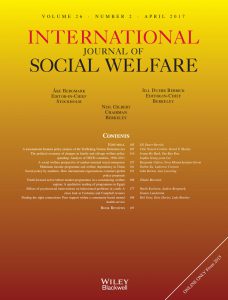Drawing a line in the sand: diagnosing autism spectrum conditions in the UK
by Jennie Hayes · Published · Updated

Original drawing by Robin Wise
If we think about it diagnostically, somewhere there is a line drawn in the sand . . . and where that line is changes really, historically.
Consultant Clinical Psychiatrist
A sociology of diagnosis approach considers the place of diagnosis in the institution of medicine and the social framing of disease definitions. Considering diagnosis as a social process rather than a ‘moment of clinical purity’ allows investigation into the social forces that may shape diagnosis and the cultural discourses drawn upon. Diagnosis enables someone to fit or not fit, to explain, to seek treatment and support, to excuse, to give meaning to those things in society that seem different and can be distressing, painful or difficult. It also helps families and professionals to support those with the label, and to seek to alleviate real distress and difficulty.
Autism spectrum disorder (ASD) is diagnosed when there are persistent patterns of difficulty in social communication and social interaction, combined with restricted, repetitive patterns of behaviour, interests or activities. Diagnosis can be challenging, as autism has an uncertain aetiology and is considered to comprise a group of heterogeneous disorders which vary widely. Assessment involves observing and interpreting behaviour – which is relational, social and contextual – and through clinical interview.
Our recent paper, Drawing a line in the sand: affect and testimony in autism assessment teams in the UK, examined how clinicians in secondary care make diagnostic decisions in autism assessment teams. We were interested in how the social framing of autism contributes to this diagnostic process.
We demonstrate how one aspect of knowledge around autism is produced, through interaction between clinicians. We found that clinicians routinely express an idea that they can feel or sense when a person they are assessing is autistic. Attention to the embodied impact of being ‘in the room’ with the patient enables dissent from the ‘objective’ evidence of the diagnostic tool, brings colleagues on board with this dissent, and can trigger new testing or a change of direction. Highly valued experience in these meetings, therefore, serves to replicate autism in its image, forming an experience ‘looping’ effect. At the same time, new concepts are embraced that develop over time, such as the way in which women might present autistic behaviours differently to men. Despite attempts at standardisation, therefore, a clinician’s assessment of the ‘feel’ of autism is an active presence in autism assessment: as a signal for reflection or a trigger for further exploration or testing.
Our study also shows how parental and family knowledge is formalised and incorporated into medical knowledge through the adoption of the clinical interview as a standardised test. Clinicians draw on the expertise of patients and families, harnessing their narratives in support of the diagnostic story, whilst assessing the credibility of these narratives as ‘story-worthy’ or not. Both clinicians and lay experts construct their diagnostic narratives within the contemporary meaning society prescribes to behaviours, and their access to diagnostically relevant information and cultural frames. Lay expertise and the role of the family as ‘credible witnesses’ are central in diagnostic deliberation.
Acknowledging and examining inter-subjectivity in diagnostic practice, therefore, is extremely pertinent across conditions and medical practices. Rather than constituting a linear clinical practice, our study illuminates the process of diagnosis as relational and interactively constructed between patient, family, clinicians and diagnostic tools.
Author Information
Jennie Hayes has a background as a cultural producer and community arts activist. She is a social psychologist currently working on examining clinician communication in out-of-hours practice at the University of Bristol (the OPEN Project). Her PhD at the University of Exeter examined how clinicians discuss autism diagnosis in multi-disciplinary team meetings and was part of the Wellcome Trust funded study, Exploring Diagnosis. https://blogs.exeter.ac.uk/exploringdiagnosis/






1540-6210/asset/society_affiliation_image.gif?v=1&s=812a48e1b22880cc84f94f210b57b44da3ec16f9)
1099-1328/asset/dsa_logo.jpg?v=1&s=e4815e0ca3064f294ac2e8e6d95918f84e0888dd)